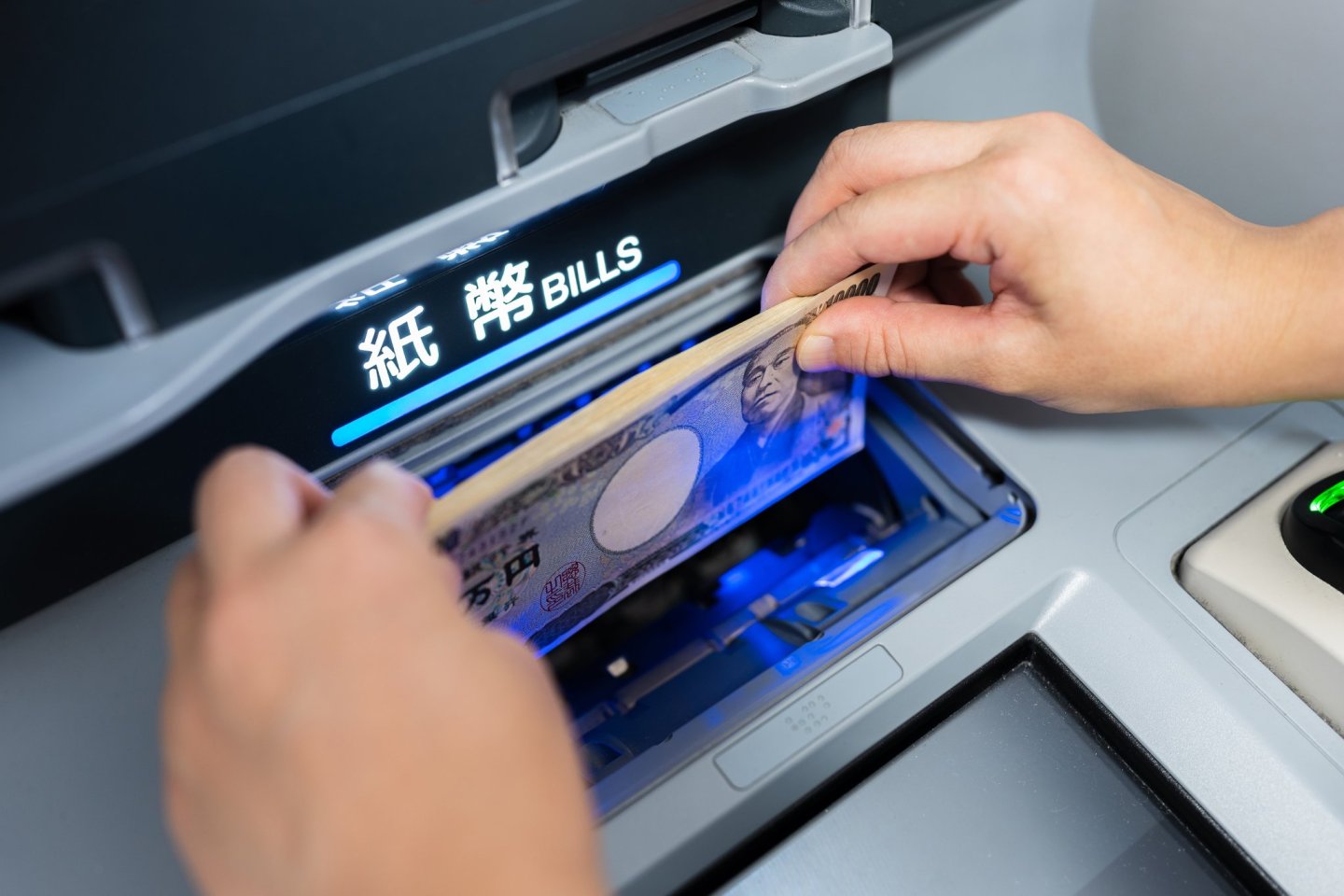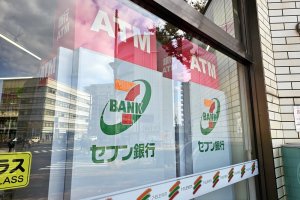The Japanese landscape for payments has transformed in the last decade to keep pace with the revolution in digital and contactless payments. Still, for many smaller businesses (like ramen shops) or vendors outside the cities, cash is still king and it pays to keep sufficient currency on you when travelling in Japan.
It's just as well then that Japan is one of the safest countries in the world, but that still leaves the conundrum of how to get your currency and when to do so.
Read on to learn more about currency conversion or find out more about money in Japan in our guide.
Currency conversion: exchange rate tool
See up-to-the-minute exhange rate information, courtesy of Wise, a provider specialised in cross-border payment transfers and sending money abroad. See real-time exchange rate updates to help you plan for your trip and determine when to switch from US dollars (or change to your currency) to Japanese yen:
Withdrawing Cash at ATMs
One way to exchange currency is simply to use your card in a domestic ATM and let the operator/banks handle the exchange rate and conversion behind the scenes. Let's look at the options.

ATMs at Convenience Stores
Convenience stores are so widespread in Japan, they can be found practically around every other street corner in the big cities. Convenience store ATMs typically accept Visa, Mastercard and JBC bank cards and, these days, have a menu to change language if needed.
| Convenience Store | Details | Supported Cards | Languages |
|---|---|---|---|
| 7-Eleven | Known as the easiest to use with foreign-issued cards. ¥100,000 withdrawal limit. See more 7-eleven ATM info. | | Supports 12 languages for cards issued overseas:
*Supported languages if using a Seven Bank cash card. |
| Lawson | ¥50,000 withdrawal limit and other usage restrictions | | Support languages:
|
| Family Mart | Two kinds of ATMs can be found at their stores: E-net and Japan Post Bank. See Japan Post Bank's site for service hours and withdrawal limits. | E-net: Japan Post Bank: | E-net: supports:
|
Other ATMs
You can also find ATMs at places like metro stations, airports, supermarkets department stores and post offices — but bear in mind not all such ATMs will be accessible 24/7. You should also be aware that:
- Some ATMs may charge a withdrawal fee, which can depend on your local bank and which ATM being used.
- There may be an overseas withdrawl limit set by your own bank eg up to ¥40,000 — confirm before you go to Japan.
- ATMs in Japan have a ¥100,000 per transaction limit.
Need to send money abroad?
Wise is known as a specialist provider in cross-border transfers and can simplify the process.
Where to exchange currency
Currency exchanges
Licensed currency exchanges will be a familiar site at international airports like Haneda, Narita or Kansai International (KIX), but you'll also find them across the big cities too. Familiar chains include World Currency Shop and Travelex and while they can be convenient (especially at an airport), that's a convenience you will be paying for. Try to compare rates so you know the fees involved.
You can also find currency exchange machines, like Smart Exchange, around Tokyo and Kanagawa, or consider converting directly to E-Money with Pocket Change kiosks.
Japanese Banks & Hotels
Japanese banks, like SMBC, MUFG and Mizuho, offer currency exchange over the counter, but you may find typical opening hours (9am–3pm weekdays) relatively restrictive. Rates are not known to be super competitive, but they may offer peace of mind when dealing in large amounts.
Larger hotel chains, like Hilton, also offer currency exchange services at their lobby.
Overall, we think ATMs offer the most reasonable rates provided you make sure your card is supported by the ATM you intend to visit, and are aware of the rates in advance. This will also help you compare to exchanging money in your home country, in advance of your trip.





































